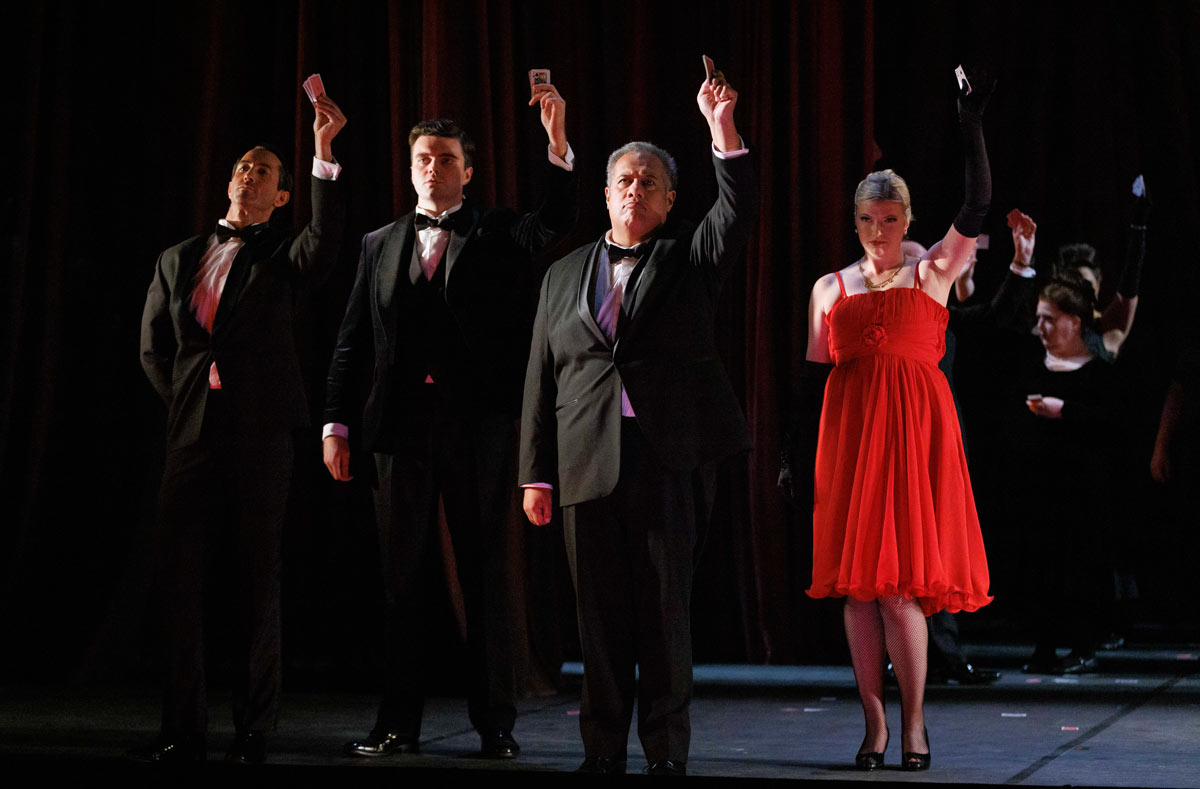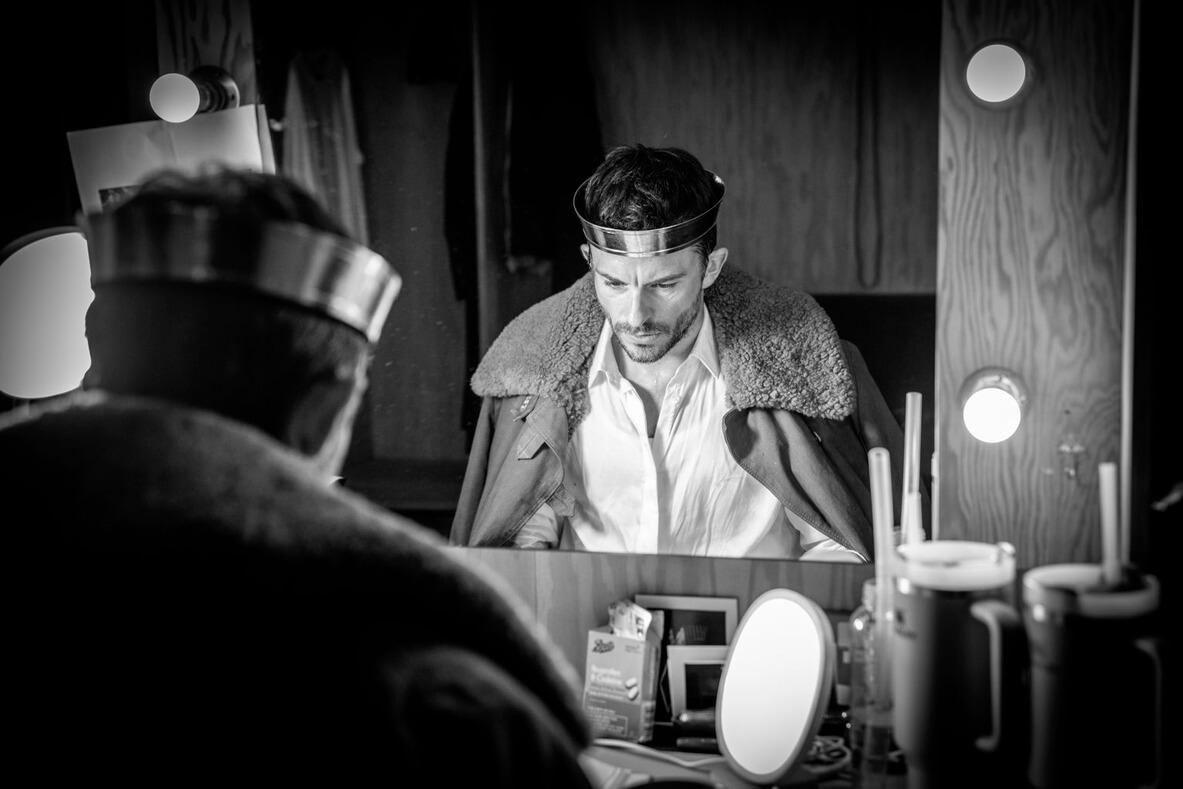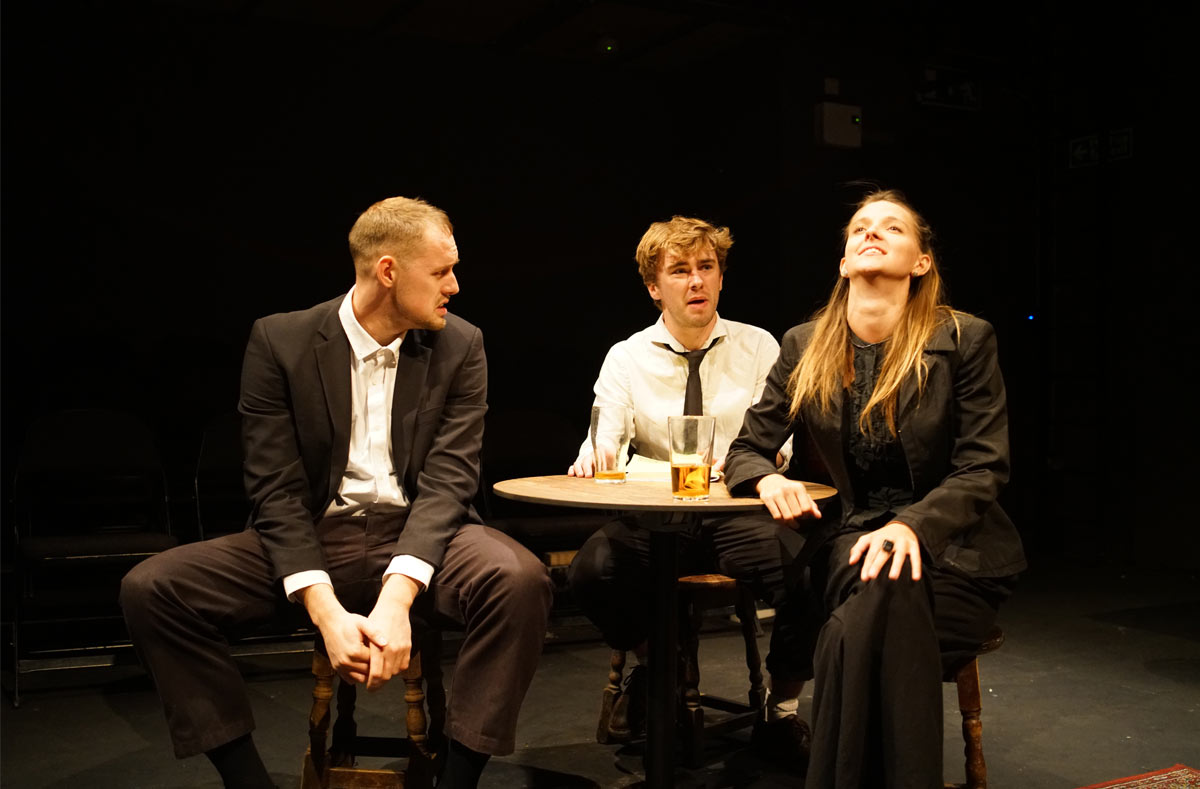Since its 1853 premier at Venice, La Traviata has established itself as one of the most performed romantic operas in the popular repertoire. Here, Peter Konwitschny’s 2013 production receives an airing, with Ruth Knight helming the revival and Richard Farnes in deft control of the refrains conjured by the orchestra under his command.
Violetta (American Soprano Nicole Chevalier) has lived the life of a courtesan. She mixes in high society circles where she has contracted the consumption (nowadays known as tuberculosis) which will eventually take her. I say eventually, but more of that later. Before then, she forsakes her fripperous life-style for the love of a gentleman Alfredo (Jose Simerilla Romero). His noble family represented by Alfredo’s father Giorgio (Roland Wood) fear the impact of the woman’s scandalous reputation and convince Violetta to release Alfredo from his romantic attachment. They part in confused circumstances. Eventually he realises she didn’t mean to abandon him and was merely looking after his reputation and best interests. They reunite, briefly, before the dreaded lurgy makes off with her for good.
It has oft been stated that between them, Puccini and Verdi produced enough tragic heroines to delight audiences with many, many hours of drawn-out death scenes — enough to sate the appetites of the most avid opera lovers. These endings are often tragic and emotional affairs which tug at the heartstrings and induce weeping in grown men, but from this reviewer’s experience it depends very much upon the production, and indeed the quality of the performances. Last evening, something was distinctly off.
The leads had as much sexual and emotional chemistry as a toothbrush flirting with a chest of drawers. Not helped by Johannes Leiacker’s costume/wig design which rendered Ms Chevalier older than her years and an unlikely gamine. Meanwhile, her Alfredo was all arran cardigan and spectacles and the pair, far from appearing like bohemian lovers, looked more like Benjamin Braddock and Mrs Robinson from The Graduate. A few awkwardly choreographed embraces and a swathe of jittery frigidity, do not, a grand opera make! Adding insult to injury (and not a little confusion) were six rows of thick red drapes in place of a set, and because curtains generally open and close, that’s precisely what the cast were required to do with them, repeatedly, ad nauseum. It is neither witty, dramatic, intriguing, nor remotely interesting watching distraught sopranos and tenors drag heavy drapes back and forth across a stage for two hours, and one wonders how this excuse for a set design was ever accepted at the commissioning stage.
Ms Chevalier certainly has lungs and technique aplenty. Her Argentinian-born male lead also has terrific tone which will surely develop as his career progresses. One hopes his ability with props develops also. Kicking a pile of books like an arthritic grandmother and throwing a chair so ineptly that it nearly bounced back, is not a good look for a dashing romantic lead! Roland Wood perhaps came off best with his rendering of (Martin Fitzpatrick’s English translation of) Di Provenza il mar, il suol which proved one of the few arias to receive applause. The Italian original is infinitely easier on the ear, but one has absolutely no doubt that Mr Wood could do the piece justice in any language. Indeed the three singers could literally perform a concert version of the entire piece and come off better than they did in this production which should have been torrid and florid, but merely succeeded in being florid and horrid. I fear Signore Verdi would not be at all pleased.

 David Webb, Patrick Alexander Keefe, Jonathan Lemalu, Amy Holyland, ENO’s La traviata 2023 © Belinda Jiao
David Webb, Patrick Alexander Keefe, Jonathan Lemalu, Amy Holyland, ENO’s La traviata 2023 © Belinda Jiao

